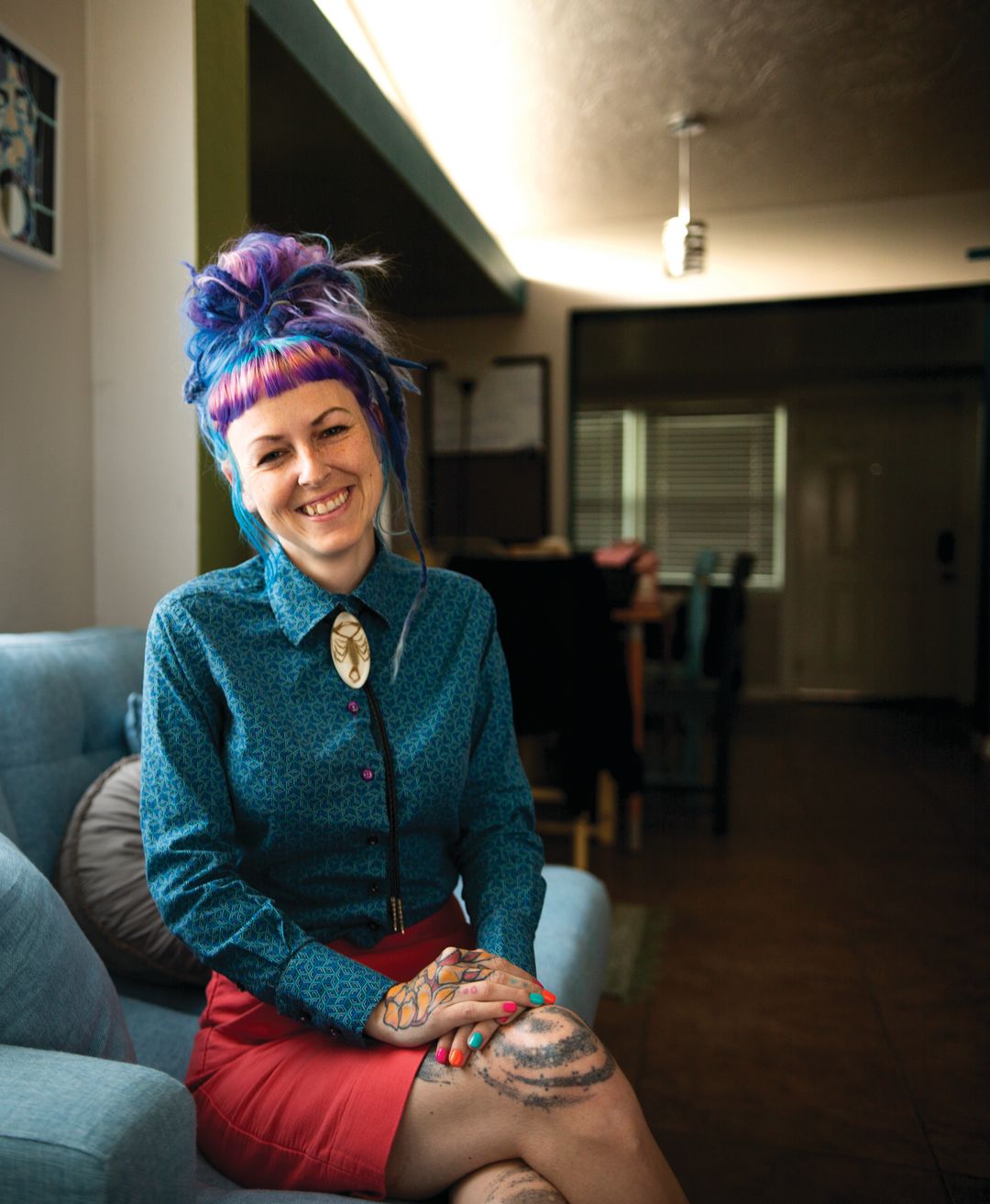Megan Howell Gives Unhoused People With Mental Illness a Chance to Get Back on Their Feet

Megan Howell
Image: Joe Lipstein
When Megan Howell worked as a waitress at Patricks 1481 in down-
town Sarasota, homeless people she befriended used to make sure she made it to her car safely at the end of each long shift. Today, Howell is returning that kindness as the founder and executive director of Second Heart Homes, a nonprofit that specifically works with homeless people living with mental illness in Sarasota and Manatee counties.
When she was a child, Howell, along with her mother and her autistic older brother, was briefly homeless. She doesn’t recall much from that period, but she credits her mom and brother for shaping her into who she is today. Howell later studied psychology and homelessness at Argosy University, and while studying and supporting herself working as a server, she befriended a man with schizophrenia who had been homeless for 25 years.
One day, the gentleman wasn’t on the sidewalk where Howell usually met him, and she knew something was wrong. She eventually found him in a hospital, where he told her that he wanted to get off the streets.
Howell visited him at the rehab facility every day, becoming his support system, managing everything from his finances to his medical care and eventually moving him into an apartment. “I realized that if I could help him, then I could accomplish so much more,” she says.
Inspired by that first client, who is now a homeowner, Howell started a company that morphed into the nonprofit Second Heart in 2019. Second Heart now owns seven properties in the region and supports 43 residents between the ages of 18 and 73. The organization serves homeless individuals with mental illness, whether diagnosed or self-reported, who are committed to addressing their mental health.
“Mental illness is a major contributor to homelessness, and homelessness is a major contributor to mental illness,” Howell says. According to Howell, one third of people who are chronically homeless have a severe mental illness.
“Mental illness creates issues for loved ones,” she says, “but people are ashamed to disclose that they have nowhere else to go, ending up in dangerous situations that exacerbate existing problems. Mental illness isn’t a choice, and
we provide love and support for our clients even on their worst days.”
In addition to putting a roof over people’s heads, Second Heart helps clients achieve personal goals which range from attending college to creating a consistent routine for taking medications. An artist herself, Howell believes that art is not a luxury and that intentional design makes Second Heart’s houses feel like homes, not transitional spaces. Team members and volunteers help maintain the homes and assimilate clients back into the community through shopping trips, museum visits or simply sharing a cup of coffee.
“One client, who used to sit outside a local coffee shop, enjoys being a patron of the shop rather than a pest,” Howell says, “and now it’s his coffee shop, too.”
As part of the Suncoast Partnership to End Homelessness’ leadership council, Howell has recently seen a 25 percent increase in homelessness aid requests. “We’re receiving more applications than ever,” she says, “with many from the ‘hidden homeless category,’ encompassing everything from people who work but cannot afford a place to live to those escaping domestic violence.” Many people couch-surf, sleep in their cars or even live temporarily in Airbnbs.
“Rising rents, inflation and Covid are making homelessness a reality for many that never would have found themselves struggling this hard,” Howell says. “Homelessness can happen to anyone.”



